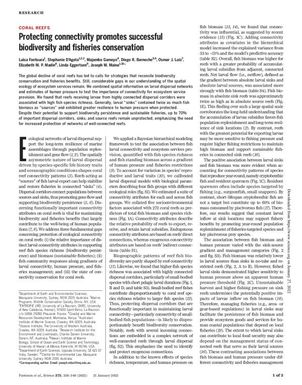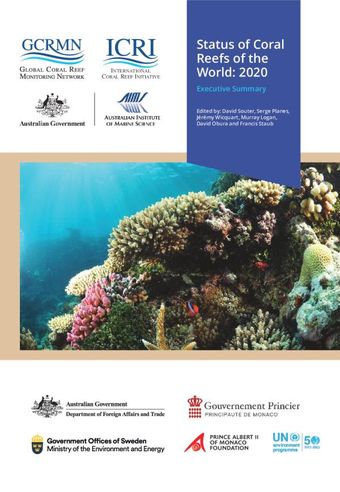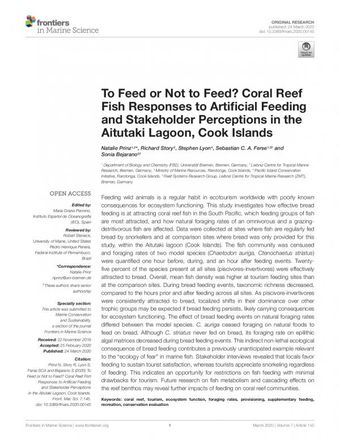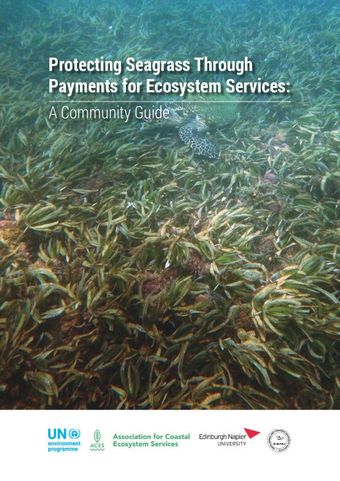Protecting Connectivity Promotes Successful Biodiversity and Fisheries Conservation
- Description:
- The global decline of coral reefs had led to calls for strategies that reconcile biodiversity conservation and fisheries benefits. Still considerable gaps in our understanding of the spatial ecology of ecosystem services remain. We combined spatial information on larval dispersal networks and estimated of human pressure to test the importance of connectivity for ecosystem service provision. We found that reefs receiving larvae from highly connected dispersal corridors were associated with high fish species richness. Generally larval sinks contained twice as much as fish biomass as sources and exhibited greater resilience human pressure when protected. Despite their potential to support biodiversity persistence and sustainable fisheries up to 70% of important dispersal corridors, sinks and source reefs remain unprotected, emphasizing the need to increase protection of networks of well-connected reefs.
- Display date:
- 2022
- Collections:
- Secretariat of the Pacific Regional Environment Programme (SPREP)
- Publisher:
- American Association for the Advancement of Science (AAAS)
- Content partner:
- Secretariat of the Pacific Regional Environment Programme (SPREP)
- Availability:
- Not specified
-
Copyright status: All rights reservedFind out more about what you are able to do with this itemThis item is all rights reserved, with means you'll have to get permission from Secretariat of the Pacific Regional Environment Programme (SPREP) before using it. For more information, please see our use and reuse page.What can I do with this item?Non-infringing useNZ copyright law does not prevent every use of a copyright work, and this item may be hosted by an international institute or organisation. You should consider what you can and cannot do with a copyright work.No sharingYou may not copy and/or share this item with others without further permission. This includes posting it on your blog, using it in a presentation, or any other public use.No modifyingYou are not allowed to adapt or remix this item into any other works.No commercial useYou may not use this item commercially.
Related items
Welcome and warm Pasifik greetings
The information on this site has been gathered from our content partners.
The names, terms, and labels that we present on the site may contain images or voices of deceased persons and may also reflect the bias, norms, and perspective of the period of time in which they were created. We accept that these may not be appropriate today.
If you have any concerns or questions about an item, please contact us.



